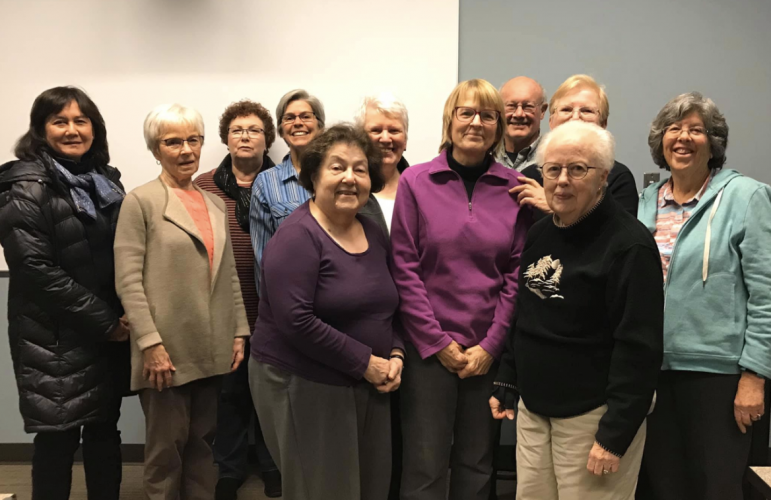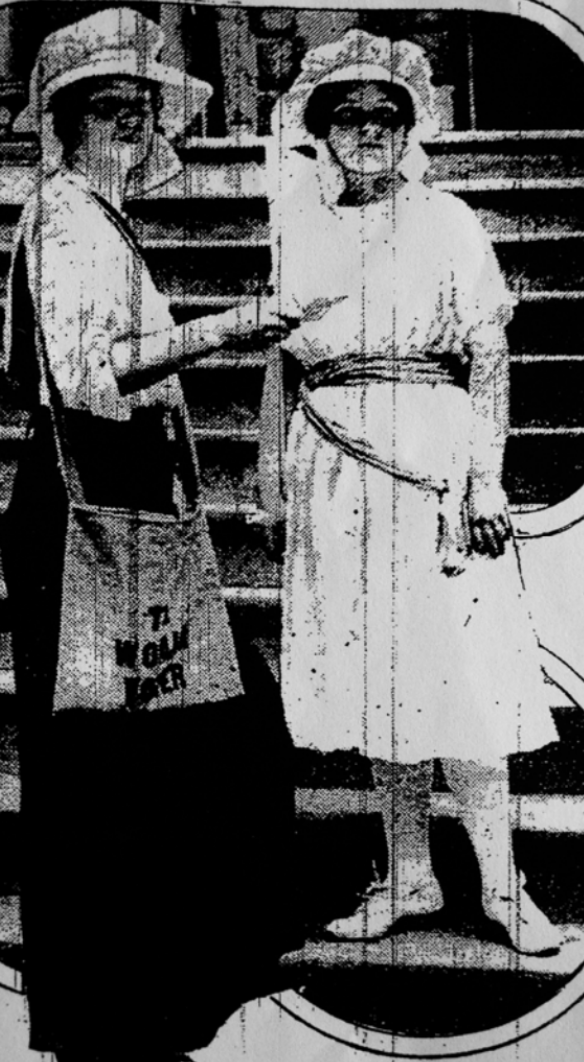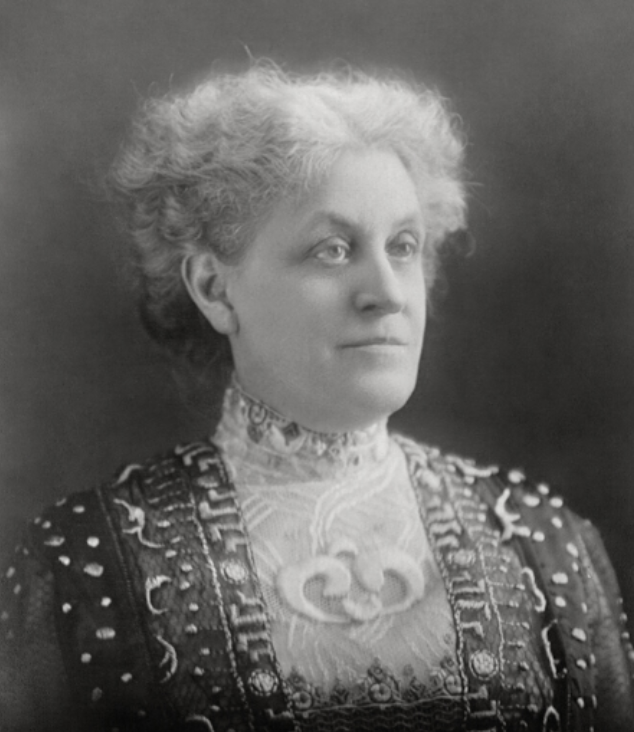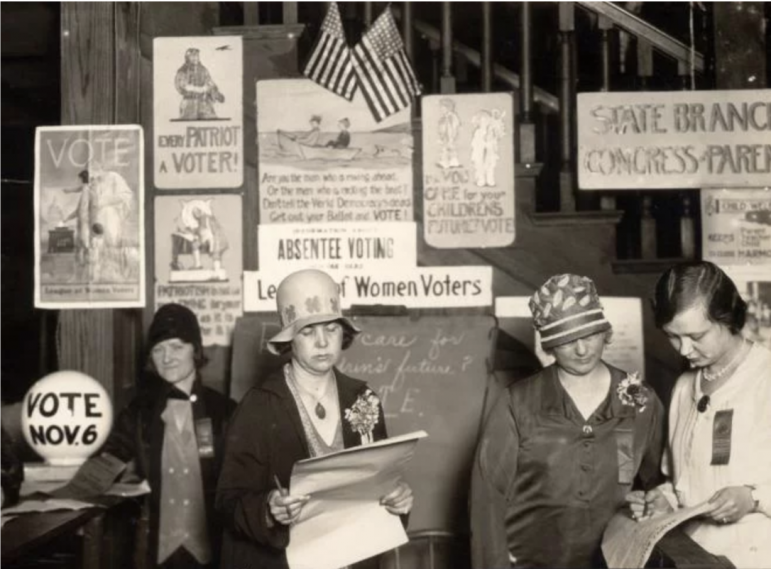
Bertha Wallerstein, mother of 87-year-old League of Women Voters member Kate O’Neill, went to jail for protesting in front of the White House for her right to vote in Feb. 1919. O’Neill, former arts writer for the “Lansing State Journal,” described her mother as “passionate and outspoken,” while “dramatic in her approach to life.”

Feb. 14, 1920 marked the first formal organization of the national League of Women Voters, a nonprofit organization dedicated to providing voter education, encouraging participation in government and achieving nonpartisan solutions in the public interest.
Six months after the formation of the league, on Aug. 26, 1920, the 19th Amendment was ratified and women won the right to vote.

The national league started in Chicago and has expanded to more than 700 communities in all 50 states. The League of Women Voters of Lansing Area, one of the 27 leagues in Michigan, celebrated the 100th anniversary of women’s suffrage with a bus trip to the Swords into Plowshares Peace Center and Gallery in Detroit, which displayed an exhibit titled, “The 19th Amendment at 100: Women’s Voices Then and Now.” The league also announced upcoming “suffrage centennial events” including a poster contest, film showings and several parades.
The Lansing group’s co-president, Margo Smith, 74, said the league arranges voter registration and educational workshops throughout Eaton, Ingham and Clinton counties, focusing the workshops in high schools. She said, “We try to build up the membership, be a positive force in the community and make a contribution for the common good.”
In addition to hosting voter education workshops, the league officially went digital in the 1990s with its primary site “lwv.org.” In 2006, it launched “VOTE411,” a resource for election-related information, a polling place locator and ballot summaries.
O’Neill said, “If you don’t know the issues that are important in your community, your state or in your nation, you won’t be well informed and you won’t be able to do a good job of voting. It’s kind-of overwhelming when you face the ballot, but the league certainly helps.”
In 2017, the Lansing group divided into three issue committees: Education/Action, Environment and Gun Violence Prevention. This past year, they added a Census 2020 committee and a 100th Anniversary of Women’s Suffrage committee.
Vice president of programming Dorothy Engelman, 70, said the issue committees support, lobby against or make recommendations on voting-related bills, but remain strictly nonpartisan for the benefit of the public interest.
“It’s sometimes easy to paint with a very, very broad brush, and I think if we were to stop using the words ‘all’ and ‘everyone’ and ‘always’ and ‘never’ that would help us to be more open-minded,” Engelman said.
“We have rights and responsibilities in this country and one of them is to be involved in the democratic process.”

Although women achieved the right to vote 100 years ago, low voter turnout due to hidden discrimination regarding race, income and culture remained a common concern among members of the league.
Echoing her mother’s passionate voice, O’Neill said, “I still think we need to continue to work. We need to either make laws or get rid of laws that are preventing people from being able to vote easily. Universal suffrage is on the books, but it doesn’t exist in reality.”